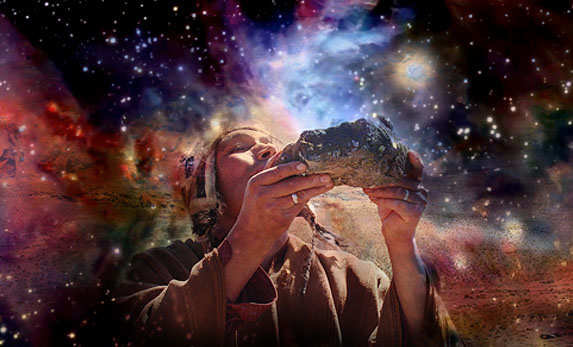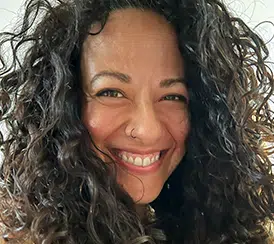
Ancient societies, native communities and shamans understand the importance of consciously closing each stage of life in order to enter, fully present, into a new cycle. A shaman’s map for the great journey of life includes the major initiations of birth, manhood or womanhood, first love, marriage (and sometimes divorce), parenthood, sagehood, and death.
It’s possible that you won’t go through all of these passages in a biological sense or at the usual time of life. For example, some people never marry or have children. Yet each of us, regardless of gender or culture, must go through them mythically at least once. If you have no son or daughter, you may write a book or produce some other creative project that will be your “baby.” You will be “born” again as you start a new life in another city or change careers, and parts of you will “die” metaphorically with the losses and changes that life brings. Initiations are inevitable.
Every initiation presents the opportunity for illumination – to awaken your divine nature, identify with the realm of the creators, experience grace, and break free of the realm of scarcity and the brutish, predatory existence that most of humanity endures. Rites of Passage allow us to gain maturity, wisdom and inner peace; to examine and honor what may not have been fully recognized in the process of daily living, and to acknowledge with gratitude what may have been forgotten.
With each Rite of Passage, we let go of the past in order to gain inner peace, wisdom, stability, generosity, purity of intent, courage, compassion, temperance, vision, strength, power and humility. When we don’t celebrate the Rites of Passage, we have unfinished business and may unconsciously be gripped by wrath, greed, lust, sloth, envy, gluttony, or pride.
By celebrating a Rite of Passage into a new life cycle, we experience genuine rebirth:
-Instead of struggling with belonging, self-worth and anger, we gain inner peace and the certainty of connection with all our relations.
-Instead of feeling resentful or becoming obsessed with materialism and power, we find healing in the power of generosity.
-Instead of being the eternal single, ambivalent about relationships, expecting our partner to meet all our needs and being unwilling to work at creating a genuine partnership, we find healing in the power of authentic courage.
-Instead of living our life through our children, our projects, or being envious of those who seem to have more options, we find healing through compassion.
-Instead of being crippled by a sense of scarcity and loss, and the desire to regain what is no more, healing is achieved through temperance.
-Instead of becoming arrogant and self-important, we find healing in humility.
While a shaman is not essential, each Rite of Passage requires sacred space, intention, conscious presence, ceremony, symbolic death and community. By opening sacred space we remember that we are connected with the cosmos, with Nature, with the spiritual world and all our relations. By creating ceremony, we remember that we are part of a mystery and great consciousness that gives profound meaning and purpose to our lives. A community (of friends, family, or peers) provides the empowerment of witnesses to the process.
Rites of Passage not only enable a much deeper connection to ourselves, they facilitate compassionate understanding of who we are, and why we are walking upon the earth. And in the process, we experience profound gratitude for the gift of life.
You can learn more about Rites and Initiations in my book, Illumination, or by joining us in our advanced master class Rites & Initiations.
.







